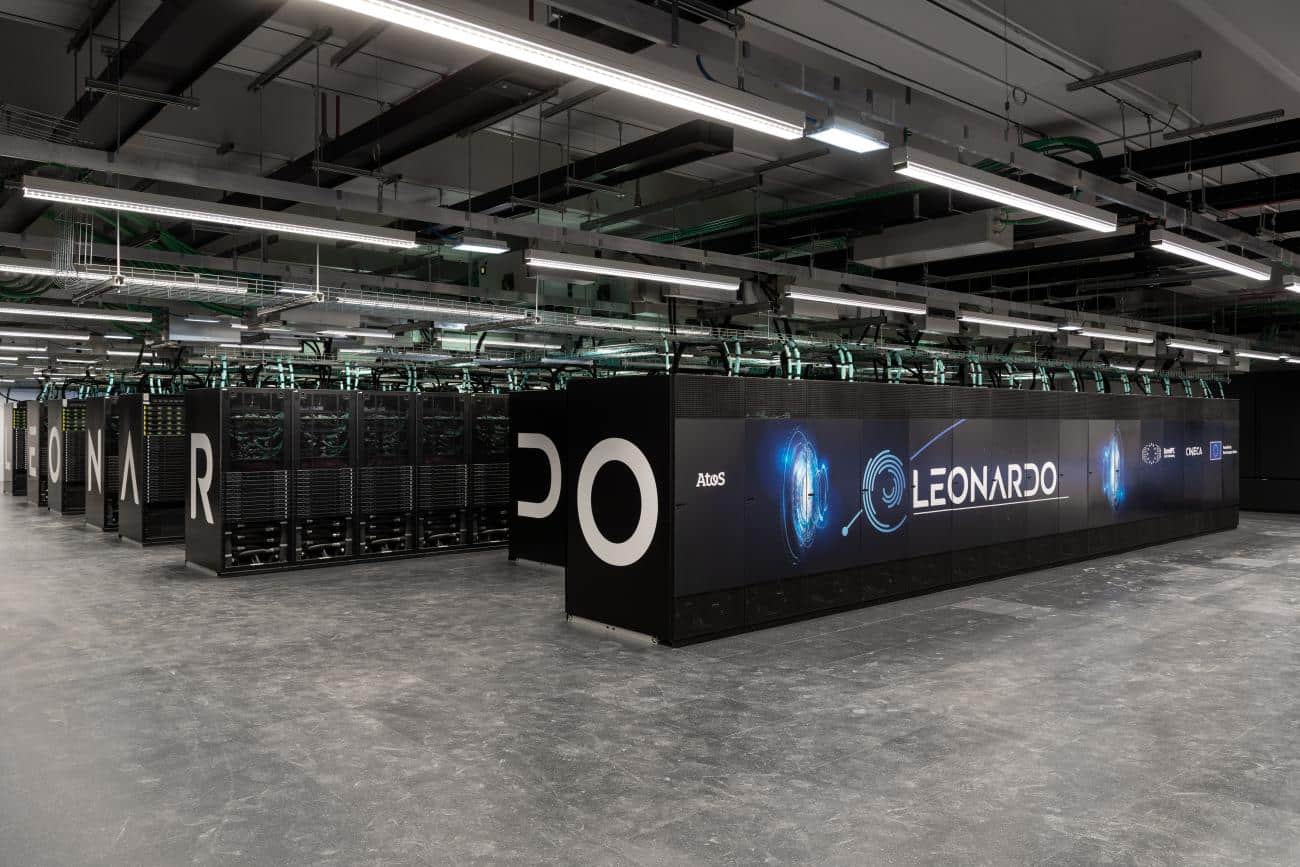The Italian university consortium Cineca, in collaboration with ENEA and EUROfusion, has signed an agreement with Lenovo to install the supercomputer Pitagora, a high-performance infrastructure designed to accelerate research in fusion energy. With a processing capacity of approximately 45 million trillion operations per second (PFlop/s), Pitagora will integrate into the Bologna Technopole ecosystem and will serve as a key tool in the quest for sustainable and safe energy.
An Alliance for the Energy of the Future
The Pitagora project is the result of a strategic collaboration between Cineca, ENEA, and EUROfusion, aiming to develop technologies capable of producing electricity through nuclear fusion. This form of energy, based on the same principles that fuel the sun, promises to be a clean and safe alternative to conventional sources.
The supercomputer will be dedicated to numerical simulation of plasma physics and structural analysis of advanced materials, essential activities to advance the feasibility of nuclear fusion as an energy source.
Sanzio Bassini, director of the HPC Department at Cineca, emphasized:
“Pitagora is a cutting-edge tool that will accelerate research in this crucial sector, ensuring exceptional performance for plasma physics simulations and materials analysis, with energy efficiency standards aligned with the highest levels of environmental sustainability.”
Lenovo Neptune: Energy Efficiency for Science
The Pitagora supercomputer incorporates the innovative liquid cooling technology Lenovo Neptune®, which dissipates up to 98% of the heat produced by the systems, allowing for a 15% reduction in the electrical energy consumption dedicated to cooling. This ensures that the CPUs operate at optimal temperatures, maximizing their performance without compromising sustainability.
Alessandro de Bartolo, general manager of Lenovo in Italy, highlighted the importance of the project:
“This historic agreement with Cineca reinforces our commitment to global scientific research. At a time when scientific challenges are increasingly complex, high-performance supercomputers enable modeling, simulation, and analysis of phenomena that would otherwise require infinite resources.”
Cineca: An International Center of Excellence
Cineca, founded in 1969, is the largest supercomputing center in Italy and one of the most important in the world. As a non-profit inter-university consortium, it is composed of 70 Italian universities, the Ministry of Education, and the Ministry of University and Research, along with 46 national public institutions.
The consortium hosts state-of-the-art supercomputers that are used by the European scientific community in multidisciplinary projects, ranging from artificial intelligence and biodiversity to Earth sciences and climatology.
With the addition of Pitagora, Cineca strengthens its role as a leader in high-performance computing, consolidating Italy’s position in international research in fusion energy.
ENEA: Innovation for Energy Transition
The National Agency for New Technologies, Energy and Sustainable Economic Development (ENEA), which represents Italy in the EUROfusion consortium, has been a pillar in researching advanced energy technologies. ENEA brings its expertise in setting up computational infrastructures to tackle the most pressing scientific challenges, including nuclear fusion.
Giovanni Ponti, head of the IT and ICT Systems Development Division at ENEA, stated:
“With Pitagora, researchers will have access to an innovative infrastructure that integrates the latest software libraries and development environments to face new challenges in fusion energy research.”
A Step Towards Energy Sustainability
The Pitagora supercomputer is not only a technological advancement but also an example of how high-performance computing can align with sustainability goals. In a global context of energy transition, projects like this reinforce the search for solutions that reduce dependency on polluting energy sources.
The integration of Pitagora into the Bologna Technopole not only benefits scientific research but also positions Italy as a leader in the race for the development of nuclear fusion technologies, a goal that EUROfusion hopes to achieve by 2050.
With the installation of this new system, Lenovo, Cineca, and ENEA mark a milestone on the path towards a more sustainable and secure energy future.

